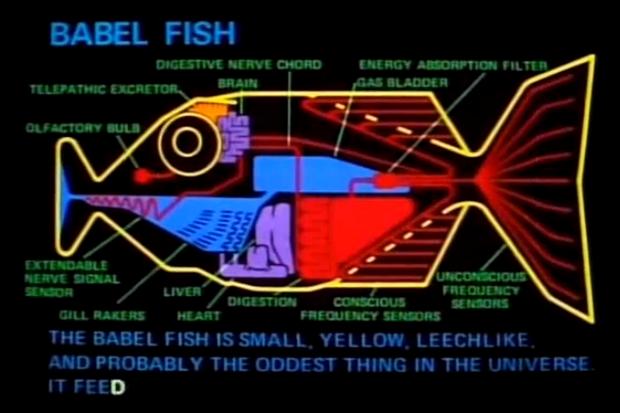Google developing a universal translator for mobile phones
Posted by: Jon Ben-Mayor on 07/26/2013 09:45 AM
[
 Comments
]
Comments
]
Google wants to turn your smart phone into a "universal translator" which in essence would allow you to speak into a device in one language, while the person on the other end would hear it in in their mother tongue.

Speaking at the company’s headquarters in Mountain View, California, Hugo Barra, a vice-president of Android, Google’s software for mobile devices, said its plans to create “real time” translation remained in the early stages. “That is where we’re headed,” he said. “We’ve got tons of prototypes of that sort of interaction, and I’ve played with it every other week to see how much progress we’ve made.”
The technology may still be several years away, but Mr Barra said Google’s system was “near-perfect for certain language pairs”, such as between English and Portuguese. Speech recognition remains a problem. Google says that in controlled environments, such as a room with no background noise, its systems have “close to 100 per cent accuracy”. However, if a person is near traffic, or using a phone with a poor microphone, glitches occur.
The company already provides a text translation system via its website. It provides a billion translations a day between 71 languages. The most recent additions include Bosnian, Cebuano (used in the Philippines), Hmong (South East Asia), Javanese (Indonesia) and Marathi (India).
“We want you to be able to translate things instantly,” said Josh Estelle, an engineer with Google Translate. “We want those conversations to happen.”

Speaking at the company’s headquarters in Mountain View, California, Hugo Barra, a vice-president of Android, Google’s software for mobile devices, said its plans to create “real time” translation remained in the early stages. “That is where we’re headed,” he said. “We’ve got tons of prototypes of that sort of interaction, and I’ve played with it every other week to see how much progress we’ve made.”
The technology may still be several years away, but Mr Barra said Google’s system was “near-perfect for certain language pairs”, such as between English and Portuguese. Speech recognition remains a problem. Google says that in controlled environments, such as a room with no background noise, its systems have “close to 100 per cent accuracy”. However, if a person is near traffic, or using a phone with a poor microphone, glitches occur.
The company already provides a text translation system via its website. It provides a billion translations a day between 71 languages. The most recent additions include Bosnian, Cebuano (used in the Philippines), Hmong (South East Asia), Javanese (Indonesia) and Marathi (India).
“We want you to be able to translate things instantly,” said Josh Estelle, an engineer with Google Translate. “We want those conversations to happen.”
Comments






